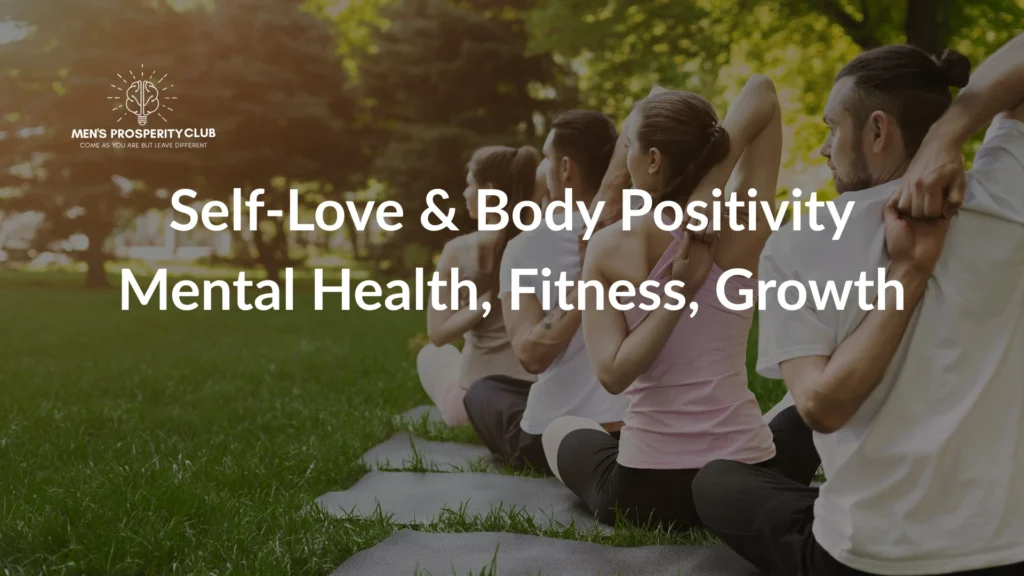The relationship between self-love, body positivity, and mental wellbeing has never been more crucial to understand. As we navigate the complexities of modern life in 2025, particularly in the UK where mental health challenges continue to rise, embracing a holistic approach to personal growth through body acceptance and mindful fitness becomes essential for our psychological resilience.
The Current Mental Health Landscape in the UK
Recent statistics paint a sobering picture of mental health in Britain. The NHS reveals that 2.15 million people were in contact with mental health services by July 2025, with nearly half a million new referrals that month alone. Furthermore, research from the House of Commons Library demonstrates that approximately one in four adults in England experiences a mental health problem each year, highlighting the widespread nature of psychological challenges across the nation.
Body image concerns significantly contribute to these statistics. The Mental Health Foundation’s recent surveys reveal alarming trends: almost three in ten adult men aged 18 and above have felt anxious due to body image issues, whilst one in five have altered their clothing choices to hide parts of their bodies. These findings underscore how deeply body dissatisfaction affects our daily lives and psychological wellbeing.
Understanding Self-Love as a Foundation
Self-love extends far beyond superficial self-care routines or positive affirmations. Rather, it represents a fundamental shift in how we relate to ourselves – accepting our imperfections whilst actively working towards growth and healing. This concept becomes particularly powerful when applied to our relationship with our bodies and physical health.
Developing authentic self-love requires challenging the internal criticism that many of us carry. Instead of viewing our bodies as objects to be judged or fixed, we learn to appreciate them as vehicles for experience, connection, and joy. This perspective shift creates space for genuine care rather than punishment-based approaches to health and fitness.
Moreover, self-love acknowledges that our worth isn’t contingent upon achieving certain physical standards or fitness milestones. This foundation allows us to pursue health and fitness from a place of care rather than shame, creating sustainable habits that support both physical and mental wellbeing.

The Science Behind Body Positivity and Mental Health
Body positivity movement advocates for accepting all body types whilst challenging unrealistic beauty standards that pervade our culture. However, its impact extends well beyond surface-level acceptance. Research consistently demonstrates strong connections between body image and mental health outcomes.
The Mental Health Foundation explains that ‘body image’ describes how we think and feel about our bodies. When these feelings become persistently negative, they can manifest as symptoms of anxiety, depression, and eating disorders. Conversely, cultivating a positive relationship with our physical selves creates protective factors against mental health challenges.
This doesn’t mean ignoring health concerns or abandoning personal growth goals. Rather, body positivity encourages approaching these areas from a foundation of self-compassion rather than self-criticism. This approach proves more effective for long-term behaviour change whilst supporting psychological wellbeing throughout the journey.
Physical Activity as a Pathway to Mental Wellness
Exercise offers profound benefits for mental health, extending well beyond physical fitness improvements. The Mental Health Foundation notes that being active releases chemicals in our brains that boost mood, enhance self-esteem, improve concentration, and promote better sleep quality. These neurochemical changes create a natural antidepressant effect that supports overall mental wellbeing.
Recent research from 2025 examining the UK’s fitness culture reveals that regular exercise demonstrates strong links to improved mental wellbeing. Physical activity serves as a powerful tool for managing stress, anxiety, and depression whilst building resilience against future mental health challenges.
The NHS emphasises that physical activity can boost self-esteem, mood, sleep quality, and energy levels whilst reducing stress. These benefits don’t require intensive gym sessions or extreme fitness regimens. Indeed, modest amounts of activity can produce significant improvements in mental health outcomes.
Reframing Fitness Through a Self-Love Lens
Traditional approaches to fitness often emphasise punishment, deprivation, and achieving specific aesthetic goals. However, when we approach physical activity through a self-love framework, exercise becomes an act of care rather than correction.
This shift involves choosing activities we genuinely enjoy rather than forcing ourselves through punishing routines we hate. Whether it’s dancing, walking, swimming, yoga, or strength training, finding movement that brings joy creates sustainable habits whilst supporting mental health.
Furthermore, self-loving fitness approaches honour our bodies’ needs for rest, recovery, and flexibility. Rather than adhering rigidly to workout schedules, we learn to listen to our bodies’ signals and adjust accordingly. This intuitive approach prevents burnout whilst maintaining long-term engagement with physical activity.
Exercise becomes a celebration of what our bodies can do rather than punishment for what we’ve eaten or how we look. This perspective transforms fitness from a chore into a practice of gratitude and self-care.
Building Resilience Through Integrated Wellness
Mental health, physical health and self-acceptance work synergistically to create resilience. When we approach wellness holistically, addressing psychological, physical, and emotional needs simultaneously, we build stronger foundations for navigating life’s challenges.
The NHS recommends five steps to mental wellbeing that integrate beautifully with self-love and body positivity principles: connect with others, be physically active, learn new skills, give to others, and pay attention to the present moment. Each of these practices can be approached through a lens of self-compassion and body acceptance.
For instance, connecting with others might involve joining body-positive fitness communities or support groups. Learning new skills could include exploring intuitive eating or mindful movement practices. Giving to others might mean sharing our own journey towards self-acceptance to help others on similar paths.

Practical Strategies for Daily Implementation
Implementing self-love and body positivity in daily life requires consistent, gentle practices. Start by noticing your internal dialogue about your body and challenging harsh self-talk. Replace criticism with curiosity: instead of berating yourself for missing a workout, explore what your body needs that day.
Create movement practices that feel nourishing rather than punishing. This might mean taking walks in nature, dancing to favourite music, or practicing gentle yoga. The key lies in choosing activities that leave you feeling energised and grateful for your body’s capabilities.
Develop body-neutral language that focuses on function rather than appearance. Instead of commenting on how your body looks, appreciate what it does: your legs carry you through your day, your arms allow you to hug loved ones, your heart keeps you alive.
The Role of Community and Support
Building a supportive community becomes crucial for maintaining self-love and body positivity practices. Surrounding ourselves with people who model healthy relationships with their bodies and support our growth journey creates an environment where positive change can flourish.
This might involve finding online communities focused on body positivity, joining fitness groups that emphasise fun over appearance, or working with healthcare professionals who understand weight-neutral approaches to health. The goal is creating a support network that reinforces self-compassion whilst encouraging healthy behaviours.
Sustainable Growth and Long-Term Wellbeing
True growth occurs gradually through consistent, compassionate practices rather than dramatic overhauls. Sustainable approaches to self-love, body positivity, and fitness prioritise progress over perfection whilst maintaining flexibility for life’s inevitable ups and downs.
This means celebrating small victories, learning from setbacks without harsh self-judgment, and continuously adjusting our approaches based on what truly serves our wellbeing. The journey becomes as important as any destination we might envision.
Embracing Your Whole Self
Self-love, body positivity, and mindful fitness create a powerful framework for mental health and personal growth. By approaching ourselves with compassion, accepting our bodies as they are whilst nurturing them with care, and viewing exercise as celebration rather than punishment, we build resilience against mental health challenges whilst creating space for authentic growth.
The current mental health landscape in the UK demands innovative approaches that address both psychological and physical wellbeing simultaneously. Through integrated practices that honour our whole selves – mind, body, and spirit – we can navigate these challenges with greater ease whilst building lives filled with genuine self-acceptance and sustainable wellness.
Remember, this journey looks different for everyone. What matters most is approaching yourself with kindness, patience, and the recognition that you deserve care simply because you exist. From this foundation, all other growth becomes possible.




